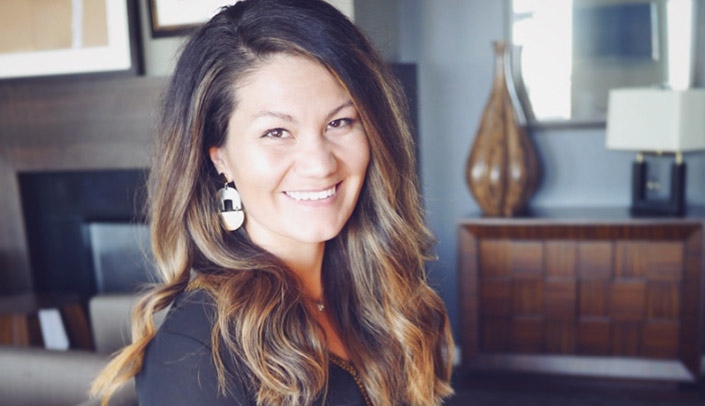A UNMC student is part of a team of U.S. scientists advocating for increased diversity in vaccine trials after publishing a new study that highlights disparities.
The study, published online today in the Journal of the American Medical Association Network Open, found that among U.S.-based vaccine clinical trials, people who are Black/African American, American Indian/Alaska Native, Hispanic/Latino and age 65 and older were the most underrepresented groups. Conversely, adult women were overrepresented.
Laura Flores, a UNMC student in the dual MD/PhD program, is first author on the study that analyzed data from 230 U.S.-based vaccine trials (of all phases) with nearly 220,000 participants from July 2011 through June 2020. Data came from vaccine trials registered on ClinicalTrials.gov.
The top findings, after analyzing the studies that reported demographic information, include:
- White people accounted for 78% of all participants
- Women accounted for 56%
- Black/African Americans accounted for 11%
- American Indians/Alaska Natives accounted for 0.4%
- Hispanics/Latinos accounted for 12%
- People 65 and older accounted for 12%
Asian and Native Hawaiian/Pacific Islander participants were equally represented compared to the U.S. population.
The research team also discovered that problems with capturing and underreporting participant demographics remain, despite efforts from the National Institutes of Health and Food and Drug Administration to implement policies and guidelines.
“At a time when there is disproportionately high morbidity and mortality of some racial and ethnic groups as well as older adults due to COVID-19, it is important to know whether we have historically done enough to include them in vaccine clinical trials,” Flores said. “We are currently witnessing dramatic health disparities in disproportionate rates of COVID-19 in Hispanic and African Americans.”
She said solving the diversity and equity problems require a multi-faceted approach.
“We need to work on ensuring our health care workforce is representative of the population. One step is to diversify medical schools to reflect the population,” Flores said. “It’s really important to ensure everyone has equitable access to good care and ensure representation in clinical trials which also should improve health outcomes.”
Flores’ collaboration with the research team began with Julie Silver, MD, a senior author of the JAMA study and associate professor at Harvard Medical School. Dr. Silver introduced Flores to UNMC alum Steve Pergam, MD, a corresponding author at Fred Hutchinson Cancer Research Center. Flores and Dr. Silver have published a number of papers on health care workforce disparities facing Hispanic and Black/African American patients.
Flores, who will graduate from UNMC’s PhD program in 2022 and the MD program in 2024, said working and learning from other scientists is a “big honor and responsibility.” It also, she said, gives her experience identifying problems facing patients and how to solve them.

Dr. Steven Pergam, a co-author, is a UNMC COM graduate.
Congratulations Laura and the team of US scientists! This is important work being done in collaboration with UNMC!
It is incredibly inspiring to see UNMC leaders, staff, faculty and students work together to be honest about where we as an institution are, and as an entire field of practice, where we have room to grow.
It's THIS level of vulnerability that will allow us to make genuine impact. It is exciting to get to be a part of an organization that is not only having conversations to address inequity, but has embraced the work that is needed, as well. One day at a time.
In awe of the cohort leading this charge — thank you.
Congratulations Laura Flores on this incredibly important study that shines a light on the racial inequities in US-based vaccine trials. Your passion to bring equity to health care is evident and much appreciated. We need more people like you.
This is such amazing work! Our community want to see that we are looking at how our healthcare and research is affecting their overall health and well being. This data can help us make plans of action and further research.
Congratulations on your study and for emphasizing the need for reflecting the populations we serve in our workforce. Keep up your passion on creating a stronger DEI for all! Congrats!!
Thank you for sharing your story. We have so much work to do to re-engage communities of color. The work of regaining trust starts with each of us sharing our story and with all of us as health care providers being open to the conversations about the reasons trust was lost. It is more than just Tuskegee, and it will take more than a minute to make a change.
Thanks to the whole team for this great contribution and congrats Laura for your work on this!
I see that the study stated Asian and Native Hawaiian/Pacific Islander participants were equally represented compared to the U.S. population. And that Black/African Americans accounted for 11%. The census data shows that Black/African Americans make up 12% of the population. The headline suggests significant disparity which the data do not show.